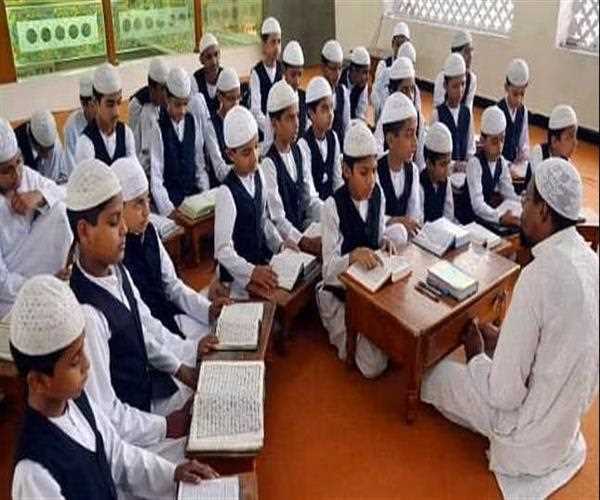
06-Jul-2022 , Updated on 7/6/2022 10:54:12 PM
Should Madarsas be banned in India?
Should religious education be supported by public funds in a secular nation like India? Government funding cannot be used to teach the 'Quran,' therefore if we must, we should also teach the Bible and the Bhagavad Gita. We seek uniformity and an end to this practice. The issue of whether including religion in education is in opposition to secularism or whether excluding religion from education is the genuine definition of secularism arises. Government funding of religious education has been a tactic of appeasement in India for the past 70 years.
In India, madarsas constitute a crucial part of the educational system. The country's Muslim population has historically faced disproportionate educational disadvantages, which is one of the main causes. Minorities in India have the right to create their own linguistic and educational institutions under Article 30 of the Indian Constitution. They can also apply for government grants without facing any prejudice. India's madarsas prospered thanks to this constitutional privilege.
The costs of Madarsas were initially covered by those who were financially successful. Madarsas started to grow into the biggest centers of religious education by the 11th century. They received permanent structures, teachers, and maintenance personnel along with the funding.
Millions of Muslims taught at Madarsas, which later appeared in nations like Russia, Mongolia, China, India, and Malaysia, during a time when barely 5% of people in Western nations could read and write.
It is said that 'madarsas' indoctrinate young minds with provocative messages that lead to their development as anti-national components. So, these institutions are not necessary. Because they are also Indian citizens, Muslim pupils should attend regular schools; otherwise, 'madarsas' must follow the standard curriculum. Aside from that, nobody other than Muslims is allowed inside mosques or 'madarsas.' However, students from all communities are welcome to attend schools run by different religious people.
Instead of Imams for mosques, we need more doctors, police officers, bureaucrats, and teachers from the minority Muslim community. Since the education imparted at madarsas did not adequately prepare anyone for 'the temporal world and its earthly problems,' the authorities decided to convert them to ordinary schools.
Madarsa teachings are irrelevant in contemporary society; they are used to radicalize young Muslims. There are other nations, such as Afghanistan, Pakistan, etc., where the Madarsa culture has harmed their social structures and turned them into hotbeds of extremist Islam. The teaching of Islamophobia to young children is tremendously hazardous for the nation as well as for all of humanity.

Student
current post-graduate student at christ university and an aspiring content writer with experience in working on online content creation and research..
Join Our Newsletter
Subscribe to our newsletter to receive emails about new views posts, releases and updates.
Copyright 2010 - 2026 MindStick Software Pvt. Ltd. All Rights Reserved Privacy Policy | Terms & Conditions | Cookie Policy